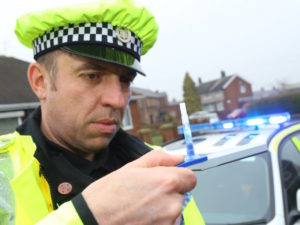Drug drivers to undertake rehabilitation courses under new proposals
Drug drivers could be required to undertake rehabilitation courses before being allowed back behind the wheel under new government proposals.

Drug-related driving offences have risen in recent years – there were over 12,000 convictions in 2019, of which 44% were committed by reoffenders.
The reform would help keep high-risk offenders off our roads and would bring the penalties for drug driving in line with drink driving.
Drug-related driving offences have risen in recent years – there were over 12,000 convictions in 2019, of which 44% were committed by reoffenders.
And while drink-drive related deaths and injuries have fallen, a total of 713 people were seriously injured in drug-driving collisions in 2020; up from 499 in 2016. Some police forces are arresting more drug drivers than drink drivers.
While those convicted of drug-driving currently receive a driving ban, prison sentence or fine by the courts, they aren’t required to complete rehabilitation courses before resuming driving – unlike drink drivers – and this is now under focus in the Government’s call for evidence.
Convicted drink drivers who don’t attend rehabilitation courses are over twice as likely to commit a new drink driving offence within three years. By offering high-risk drug-driving offenders the same support, the Government hopes to bring down the number of repeat offenders.
Transport Secretary Grant Shapps said: “It’s only right that drug-drivers must undergo rehabilitation before getting back behind the wheel, helping protect the public from this hidden problem and stamping out drug driving for good.”
The call for evidence will also look at changing specimen procedures to decrease the risk of bloodborne viruses to healthcare professionals, and will seek views on the relationship between medicinal cannabis and road safety.
Later this year, the Government will seek views on other drink and drug driving issues, such as failing to stop after a collision and the criminal use of vehicles.
RAC head of roads policy Nicholas Lyes greeted the proposals: “Drug driving ruins lives and threatens the safety of all road users. We welcome proposals to offer drug driving offenders rehabilitation courses, in the same way those caught drink driving are offered them, because the evidence shows this helps to reduce reoffending and improves road safety.”
Data from the AA also shows the need for increased action. Jack Cousens, head of roads policy, explained: “Drug driving court cases have risen from just under 1,500 in 2015 to 13,700 in 2020, which shows a growing problem that police forces are rightly seeking to stop. Likewise, we are encouraged that more drivers are being tested, to deter people from driving under the influence of drugs.”












